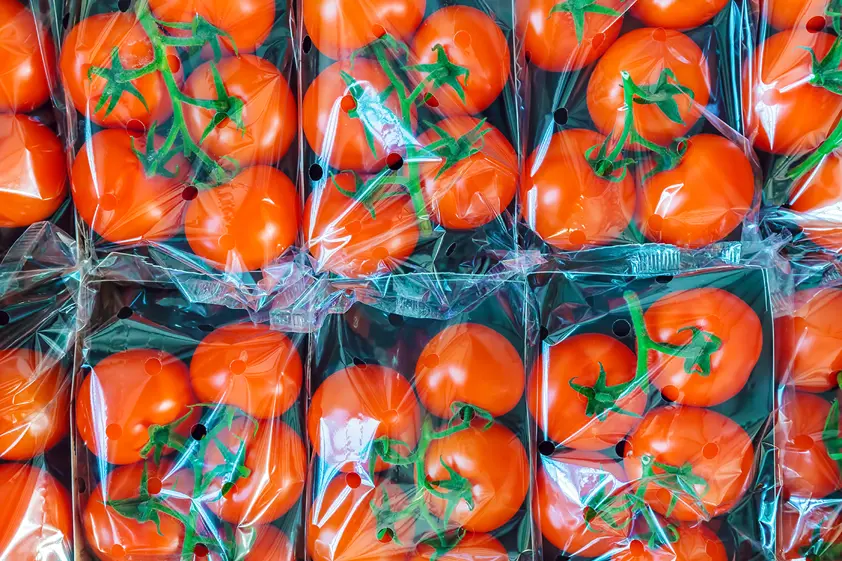According to a report by Zero Waste Europe, there will be more than 900 billion items of packaged food and drink consumed in Europe in 2020. What kind of materials these packages are made of and whether they will be recycled or not will make a big difference.
One of the key players in driving the change towards more sustainable packaging is supermarkets. As consumers demand better practices and alternatives to plastic, European supermarket chains have been keen to answer the call, pledging to reduce the amount of plastics used in their stores.
However, reducing the amount of plastics is not as straightforward as it may sound. While there are many bio-based alternatives available, there are several angles, both economical and hygienical, to be considered. EU and country level regulations aim both to reduce the amount of single-use plastics but also strive to make sure that goods are packaged in a safe and durable way – for which plastic is still one of the best alternatives.
The rise of plastic
In 2015, an average European generated a staggering 31.23 kg of plastic waste, according to Eurostat. As it is estimated that roughly 40% of all plastic waste comes from food packaging, the impact of decisions made by food producers and sellers on recyclability and raw materials is significant.
“The last 20 years led to an extreme increase in the selection, reduction and enlargement of portions on food shelves. There are now mini portions, often as multipacks, and huge portions à la USA,” says Roland Schultz, global director for marketing and packaging at Albis Plastic, an international distributor of compounded thermoplastics to leading manufacturers and brands.
“Service restaurants have disappeared, slaughterers have given up their businesses and now discount supermarkets dominate the market.”
For others, however, whilst the increase in the selection of packaged supermarket products cannot be denied, it is more a cause for alarm than celebration.
Joosten Brüggemann is the managing director of TRADE MARKETEERS Branding & Packaging GmbH & Co. KG, based in Oldenburg, northern Germany. Its clients include Coca Cola, Kellogg’s, Pedigree and Whiskas. He says despite the push towards reduced plastic packaging, the reality is that recent decades have been about supermarkets pushing alternative forms of plastics, instead of alternative packaging forms.
“The past 20 years have been marked by the development of new plastics as alternative packaging options, raising the use of plastics in the food industry to a very high level. This variety of plastic solutions has meant one no longer thinks about alternatives.”
Tackling the plastic problem
Supermarkets in Germany, however, are very keen to point out how, instead of increasing use of plastics, they are striving to reduce it.
Christina Stylianou is the press spokesperson for Netto Marken-Discount AG, the German discount supermarket chain owned by the Edeka Group. Its first store was opened in 1984 and today it has 4,200 stores across Germany.
According to Stylianou, Netto has been offering a selection of drinks with reusable packaging for over 30 years.
“We have the largest beverage selection in reusable packaging and offer our customers nationwide half of our beverage selection in reusable containers – a total of around 2,000 different reusable drinks.”
Similar reactions come from the Cologne-based REWE Group, founded in 1927. Today REWE has 3,300 stores across Germany – and also operates smaller supermarket chains such as Billa and PENNY.
Press spokesperson Kristina Schütz says REWE has made colossal contributions to reducing plastic packaging within its supermarkets.
“Foil savings on sandwich and garbage bags, kitchen towel packaging and toilet paper on selected REWE and PENNY own-label products resulted in a total saving of more than 300,000 kg of plastic film since 2016.”
Kaufland is a super market chain with over 1,200 stores in Germany, the Czech Republic, Slovakia, Poland, Romania, Bulgaria and Croatia. The company’s spokesperson Jörn Roßberg says Kaufland is constantly focusing on ways to become more environmentally-friendly for the future. “By 2025, plastic consumption at Kaufland will be reduced by 20%, and all private label packaging will be 100% recyclable.”
Toward plastic-free
Despite these considerable achievements, bolder still perhaps is removing plastic from the supermarket shelves altogether.
EkoPlaza is a Dutch chain of organic food supermarkets and host of the world’s very first plastic-free pop-up store in Amsterdam, offering organic products entirely free of plastic wrapping. Ekoplaza’s quality manager Steven Ijzerman believes that the idea of all European supermarkets having plastic-free aisles is wholly feasible.
“Our world’s First Plastic Free Aisle gave awareness to customers, government and industry. We should now just work on better alternatives than plastic. There are already many good options and more to come.”
When it comes to supermarket customers, however, many feel Germany is still not doing enough. In a 2018 study by Ipsos, German consumers believed that packaged goods producers and sellers should take the biggest responsibility for reducing the amount of plastic waste. And almost a quarter of people also viewed that the responsibility is shared not only with producers and sellers but regulators and consumers alike.
Student Jonas Wermelt from Bremen thinks that there is still a long way to go. While he acknowledges that Germans separate rubbish far more systematically than some other European counterparts, he believes that there is plenty of room for improvement.
“It is still terrible and also really annoying that supermarkets still use so much plastic. The government should just ban it.”
Whether that will happen remains to be seen. Meanwhile, the search for better practices and development of alternative materials continues.
Related stories:
EU aims to change the plastic tide
TEXT Rob Hyde
IMAGES Shutterstock

